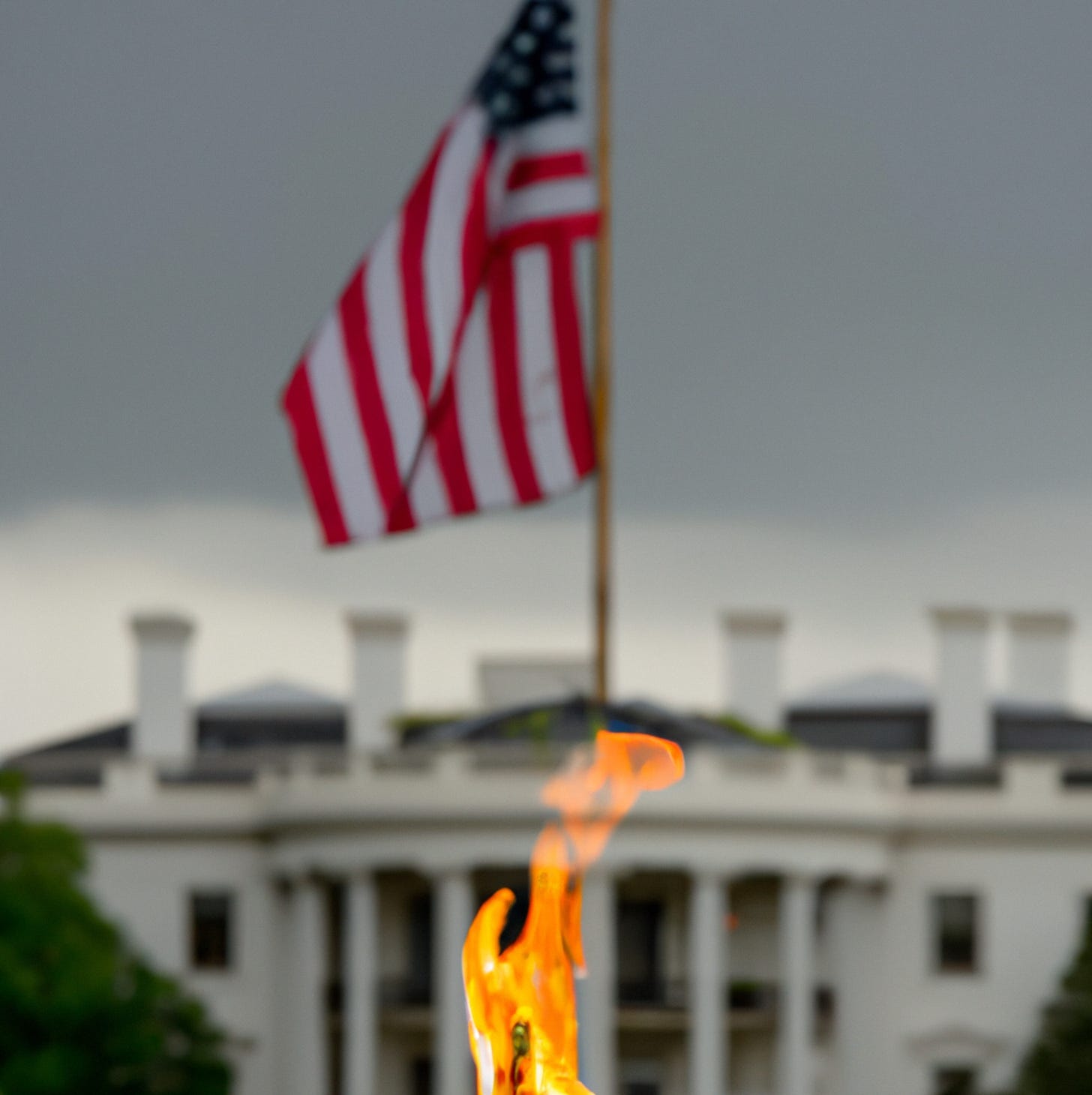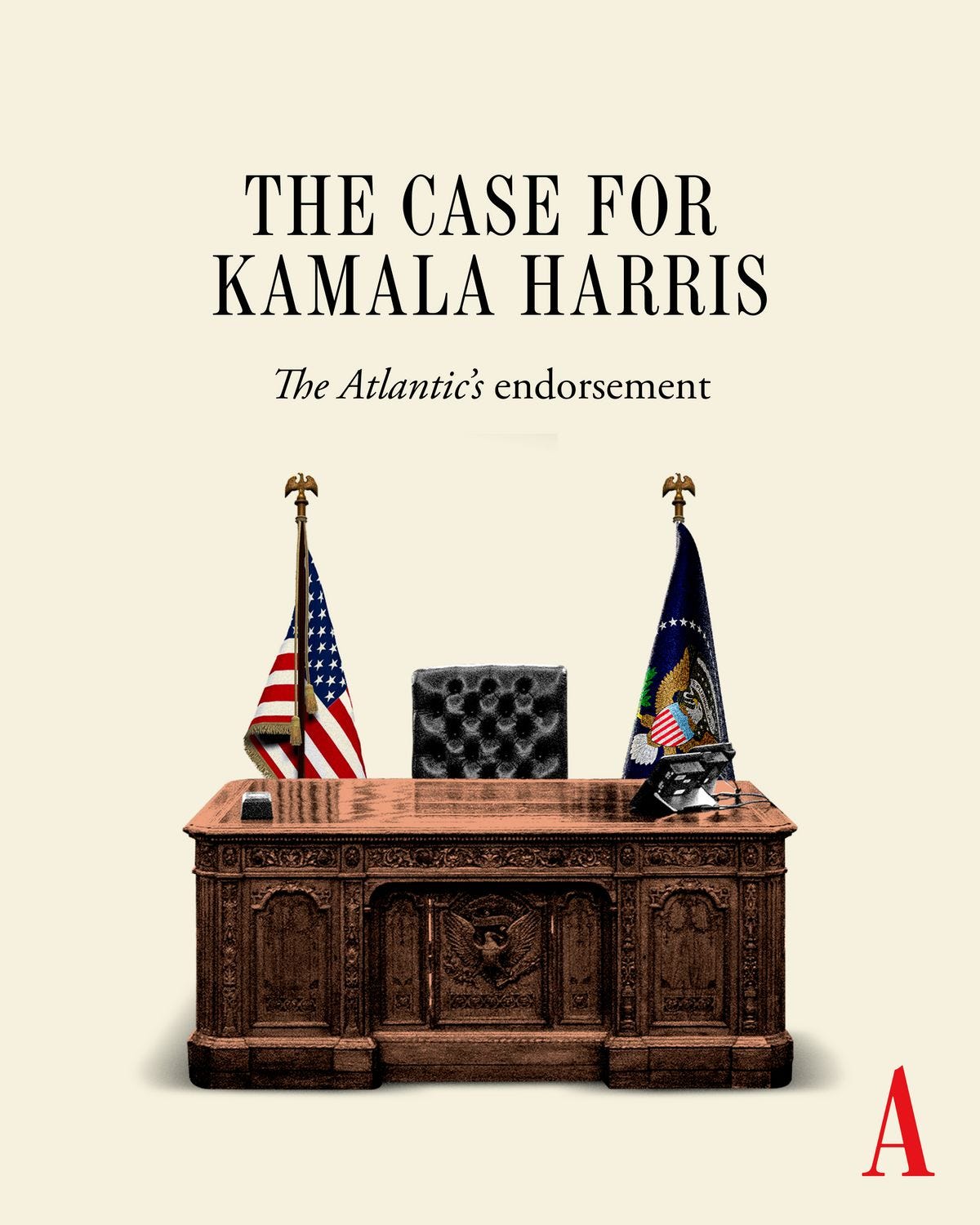Chapter Eleven: The Politics of Cultural Despair
Trump’s Loyalists, the Forgotten Americans, and the Legacy of Economic Dislocation
The most important fact of 2024 is the continued presence of Donald Trump in American politics. Right now, he stands a 50-50 chance of winning the election and winding up back in the Oval Office on January 20. It is impossible to forget that this man summoned a mob to the Capitol on January 6, 2021, in order to overthrow the government. Of one thing we can be certain in this very uncertain year, if Joe Biden should summon a mob to do anything, no one would show up. Biden has no personal following, which is why the Democratic party was able to push him aside. In sharp contrast, Trump has a personal following whose loyalty to him is adamantine.
Trump is the most astute practitioner of grievance politics in American history. His only rival is Huey Long. What is the grievance uppermost in the lives of his supporters? Is the problem economic in nature or are his supporters culture warriors?
Let’s look at the economic situation first. In many respects, the American economy has been performing splendidly. The growth rate is the envy of most other countries. The economy seems to have survived the dreadful pandemic year of 2020 without going into recession. The unemployment rate is a remarkable 4.1%. Not only is 2024 not 2020. It is not 2008 nor 2001 nor 1982, never mind 1932. Things have been a lot worse. However, as Barack Obama’s chief strategist David Axelrod observed, declaring that things could be worse was “tough to message.”1
The highly regarded British magazine, The Economist, ran a feature story on the American economy back in 1995 which is worth our attention today. Discussing American productivity growth at the time, the story observed that behind this increasing productivity “is something distinctive in American society and politics. No other rich country gives companies quite such a free hand to lay off workers and shift resources from declining industries into growing ones. No other country refreshes itself in the same way by continuous waves of immigration. . . . For as long as Americans are willing to put up with the mass layoffs and accompanying social dislocation, these are incomparable wealth creating advantages.”2
Let us dwell for a moment on the observation of a free hand to lay off workers. What does that mean? The extent of the job losses from the Fortune 100 firms from 1979 to 1989 is startling. The firms in question shed 1.5 million employees, 14 percent of their workforce. Employment in steel and autos fell dramatically. Railroads employed 1.2 million people in 1950 but only 182,000 by the end of the century.3 There is a lot of tragedy behind these numbers. Communities which depended upon these industries were decimated by their collapse. As employment declined, deaths of despair rose.
Given these massive layoffs as the United States transitioned from a manufacturing to a service economy, it is altogether remarkable that employment is as robust as it is today. Of course the people losing the manufacturing jobs in what came to be known as the rust belt were not the people being hired in the tech sector. Nor were their children. Many of those jobs in, for example, Silicon Valley were being filled by new arrivals to the United States from East Asia and from South Asia.
The “social dislocation” due to these “mass layoffs” created a lot of wealth both for the people who directly benefited and for the United States as a whole. But what of the people left behind? They do not comprise a “basket of deplorables,” to use Hillary Clinton’s disastrously clumsy formulation. These were Americans whom the country let down. People who lived in the rust belt were the forgotten Americans whose parents had been part of the Roosevelt coalition and staunch Democrats. Some of these people, feeling betrayed, have turned to Trump.
What is difficult to understand is why they feel that Trump will help them out. He says he supports high tariffs. What he does not seem to understand is that a tariff is a tax which Americans will pay. And there will be retaliatory tariffs. Tariffs will drive up costs, and they will also drive up prices and create inflation.
The Economist talks about the United States refreshing itself with successive waves of immigrants. But Trump has turned the Republican Party into the most virulently anti-immigrant party since the Know Nothings in the 1850s.4 Thinking people advocate an organized and fair immigration system, which the Biden administration has failed to provide. But it does not appear that Trump will provide such a system either. He lashes out at immigrants, including those who have arrived legally. Many of these people make a valuable contribution to American businesses. Stoking hatred of them does no one any good.
To understand the Trump phenomenon, it is useful to go all the way back to the election of 1964. The Republican Presidential nominee that year was an outsider. Barry Goldwater lost in a landslide to his Democratic opponent Lyndon Johnson. He was portrayed quite successfully by Johnson’s campaign as an irresponsible right wing radical whose election would threaten nuclear war. One of the most famous commercials in history made this case.
But in the process of losing, Goldwater began the transformation of the Republican Party from the party of Dwight D. Eisenhower to something quite different. Ronald Reagan burst upon the national scene in a memorable speech supporting Goldwater on October 27, 1964, headlined “A Time for Choosing.”5 Goldwater ran against big government, talking about privatizing the Tennessee Valley Authority and making social security optional. Reagan also ran against the government. In his First Inaugural Address, he declared that “government is not the solution to our problem; government is the problem.”6 In his first campaign in 2016, Trump said he would “drain the swamp.” “Nobody knows the system better than me [sic], which is why I alone can fix it.”7 All this said, it is important to note the differences between Trump and Goldwater. Goldwater was a patriot, and he was a decent man.
At the time, few people believed the 1964 election was a turning point; but in a number of ways it was. Five states of the deep south voted for the Republican Presidential nominee. With the exception of Louisiana, which went for Eisenhower in 1956, this was the first, time these states voted Republican since the end of Reconstruction in 1876. Thus was born the Southern Strategy which Republicans have depended upon ever since.
The Southern Strategy in action.
The Election of 1960:
The Southern Strategy in action.
The Election of 1964:
Perhaps most significantly, 1964 was the last election in which the Democratic Party won the majority of the white vote in a Presidential contest.
Nineteen sixty saw the publication of The Conscience of a Conservative by Goldwater.8 According to one author, this book “became the most widely read political book of the twentieth century.”9
“I have little interest in streamlining government or in making it more efficient,” Goldwater said in the book, “for I mean to reduce its size. I do not undertake to promote welfare, for I propose to extend freedom. My aim is not to pass laws, but to repeal them. It is not to inaugurate new programs, but to cancel old ones. . . .”10
In a passage which unites political/cultural and economic issues, Goldwater wrote, “The root difference between the Conservatives and the Liberals . . . is that Conservatives take account of the whole man while the Liberals tend to look only at the material side of man’s nature. The Conservative believes that man is, in part, an economic, an animal creature; but that he is also a spiritual creature with spiritual needs and spiritual desires. What is more, these needs and desires reflect the superior side of man’s nature, and thus take precedence over his economic wants. . . . [T]he Conservative looks upon politics as the art of achieving the maximum amount of freedom for individuals that is consistent with the maintenance of social order.”11
The Conscience of a Conservative was ghost written for Goldwater. Indeed, it is possible that he did not read it cover to cover prior to its publication.12 He was not a bookish man. He was the last major party Presidential candidate who did not have a college degree.
What Goldwater did for the Republican Party was to give its members a positive message -- something to be in favor of rather than solely to be opposed to. That something was limitless freedom made possible by limited government, a pledge perhaps more honored in the breach than in the observance but nonetheless a standard to which they could rally.
This is the very type of pointed, positive message which Kamala Harris lacks today. Many of her supporters are voting against Trump rather than for her.
The Atlantic Monthly is a magazine that was founded in 1857. It has endorsed five Presidential candidates: Abraham Lincoln in 1860, Lyndon Johnson (whose opponent, as we know, was Barry Goldwater) in 1964, Hillary Clinton in 2016, Joe Biden in 2020, and Kamala Harris this year. The magazine’s statement reads in part, Harris “respects the law and the Constitution. She believes in the freedom, equality, and dignity of all Americans. . . . She doesn’t embarrass her compatriots. . . . She believes in democracy. These, and not any specific policy positions, are the reasons that the Atlantic is endorsing her.”13
Has there ever been so low a bar? This looks more like an indictment than an endorsement. Indeed, it is striking that on its cover The Atlantic did not put Harris in the chair behind the desk. As this enervating campaign hurtles toward its conclusion, it would be helpful if Harris could make a positive case and do it in a memorable way.
Reed Hundt, A Crisis Wasted: Barack Obama’s Defining Decisions (New York: RosettaBooks, 2019) p. 3.
Quoted in Thomas K. McCraw, ed., Creating Modern Capitalism: How Entrepreneurs, Companies, and countries Triumphed in Three Industrial Revolutions (Cambridge, MA: Harvard University Press, 1997) p. 348.
Richard N. Langlois, The Corporation and the Twentieth Century: The History of American Business (Princeton: Princeton University Press, 2023) pp. 427 and 464.
Eric Foner and John A. Garraty, eds., The Reader’s Companion to American History (Boston: Houghton Mifflin, 1991) p. 622.
https://www.reaganlibrary.gov/reagans/ronald-reagan/time-choosing-speech-october-27-1964
https://www.reaganlibrary.gov/archives/speech/inaugural-address-1981
https://www.washingtonpost.com/politics/2024/10/11/trump-corporate-interests-drain-the-swamp/ “Nobody knows the system better than me [sic], which is why I alone can fix it.” https://www.politico.com/video/2020/08/20/trump-at-2016-rnc-i-alone-can-fix-it-085403
Barry M. Goldwater, The Conscience of a Conservative (Wilder Publications, 2014, e-book). This book was originally published by Victor Publishing in 1960.
Lee Edwards, Goldwater: The Man Who Made A Revolution (Washington, DC: Regnery, 1995) p. 103.
Goldwater, Conservative, p. 18.
Goldwater, Conservative, pp. 8-10.
See the terrific article by John B. Judis, https://www.washingtonpost.com/wp-srv/style/longterm/books/reviews/goldwater.htm
Heather Cox Richardson, “Letters from an American,” October 10, 2024 (Substack)









Richard, of all the fascinating articles you have posted here thus far, this one is, for me, the most profound, thought-provoking, and disturbing. It seems to me like a grotesque irony, that mass lay-offs have been both a powerful engine of economic growth and a cause for a large segment of voters to embrace the Trump candidacy. It is hard to shake feelings of dread brought on by what you've written here, but I'm glad you wrote it. I am so sorry for those who are feeling forgotten and left behind. Where is the solution to this dilemma? I do wish that Kamala Harris's campaign were more inspiring. But she is our only alternative right now.